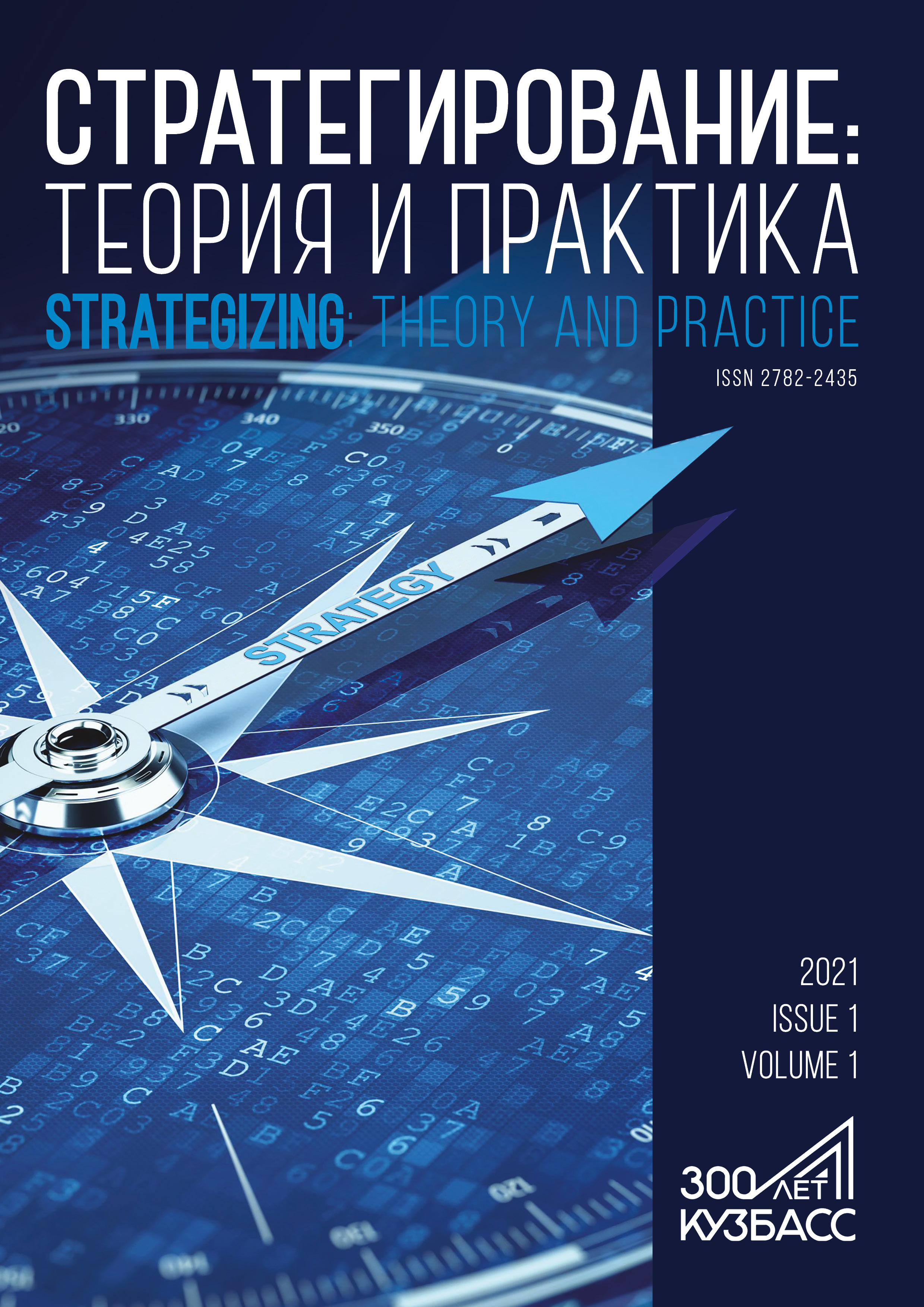Kemerovo, Kemerovo, Russian Federation
Education can bring resource-type regions to sustainable development. However, education receives very little scientific attention as an object of strategizing. The existing definitions and descriptions of education do not quite correspond to the general theory of socio-economic systems. The science of strategizing needs a new theoretical and terminological analysis of this concept. This research relies on the general theory of strategy and the methodology of strategizing developed by Professor V. L. Kvint, e.g., the structural-system analysis and the logical methodology for definitions. It covers the existing approaches to the definition of the concept and structure of education systems published in the Russian Science Citation Index. Based on the general theory of systems, the authors developed the following definition for the education system in a resource-type region: it is a complex of individuals, organizations, and institutions linked by pedagogical, psychological, organizational, and socio-economic relations regarding and aimed at developing human capital for the sustainable inclusive development of people, businesses, resource regions, and post-extractivist practices. This definition includes not only elements, but also relationships within the system and its purpose. The article introduces a conceptual scheme of a holistic strategy for the development of the education system in a resource-type region. The scheme makes it possible to strategize all elements, from education to tailored strategies for students and academics. The research results can be used by universities, regional authorities, and education management to strategize the development of education in resource-type regions.
education system, resource-type region, object of strategizing, systemic approach, strategizing methodology, theory of strategy, competencies, human capital
1. Akulov AO, Chelombitko AN. Theory and methodology of strategic modernization of industrial regions. Bulletin of the Kemerovo State University. Series: Political, Sociological and Economic Sciences. 2020;5(1):62-73. (In Russ.) https://doi.org/10.21603/2500-3372-2020-5-1-62-73
2. Ermakova AA. Development of methodology of construction educational ergatic systems. Izvestia Volgograd State Technical University. Series: Problems of Social and Humanitarian Knowledge. 2015;24(10):122-124. (In Russ.)
3. Kagan ES, Goosen EV. Resource regions: qualitative and quantitative criteria for selection. Science-intensive Technologies for the Development and Use of Mineral Resources. 2017;(3):163-170. (In Russ.)
4. Kvint VL. Gazing into the future: a study of prophets, visionaries, leaders and strategists. St. Petersburg: North-Western Institute of Management of the Russian Academy of National Economy and Public Administration under the President of the Russian Federation; 2018. 28 p. (In Russ.)
5. Kvint VL. The concept of strategizing. Kemerovo: Kemerovo State University; 2020. 170 p. (In Russ.) https://doi.org/10.21603/978-5-8353-2562-7
6. Kvint VL. The global emerging market: strategic management and economics. Moscow: Biznes atlas; 2012. 627 p. (In Russ.)
7. Kvint VL. The concept of strategizing. Vol. 1. St. Petersburg: NWIM RANEPA; 2019. 132 p. (In Russ.)
8. Kuzheleva AA. The genesis of the modern concept of “socio-economic system”. Bulletin of the Donetsk National University. Series B. Economics and Law. 2018;(2):104-117. (In Russ.)
9. Linnik BB. Corporate educational system: etymology, approaches, interpretation. Manager. 2019;(3):73-80. (In Russ.)
10. Mirziyoyeva SSh. The methodological foundation for strategizing the socioeconomic development of Uzbekistan. Moscow: RANKhiGS; 2020. 184 p. (In Russ.)
11. Nesterova OA. Directions for improvement of the innovative educational system providing comprehensive development of innovative persons. Journal of Altai Academy of Economics and Law. 2022;(11):483-488. (In Russ.) https://doi.org/10.17513/vaael.2594
12. Educational system as management and pedagogical category and design object. SA Tsyplakova [et al.]. Problems of Modern Pedagogical Education. 2017;(8):268-274. (In Russ.)
13. Principles and tools for designing a competency-based model for training teachers of preschool education as an open educational system. GN Tolkacheva [et al.]. Prepodavatel XXI vek. Russian Journal of Education. 2022;(1):41-57. (In Russ.) https://doi.org/10.31862/2073-9613-2022-1-41-57
14. Resource regions of Russia in the “new reality”. VV Kryukov [et al.]. Novosibirsk: Institut ekonomiki i organizatsii promyshlennogo proizvodstva SO RAN; 2017. 307 p. (In Russ.)
15. Sasaev NI. The role of industrial strategizing in the post-normal period. Bulletin of the St. Petersburg State University of Economics. 2022;(3):107-110. (In Russ.)
16. Sasaev NI. Theoretical foundations and methodology of the Russian gas industry development strategy. St. Petersburg: NWIM RANEPA; 2019. 176 p. (In Russ.).
17. Silakova VV. Problems of education management in the conditions of informatization of russian society. Economics: Yesterday, Today and Tomorrow. 2022:12(2):77-90. (In Russ.) https://doi.org/10.34670/AR.2022.35.74.009
18. Smirnov VV. The analysis of the self-evolution of the russian educational system National Interests: Priorities and Security. 2021;17(4):758-780. (In Russ.) https://doi.org/10.24891/ni.17.4.758
19. Tarasova IB. Nizhny Novgorod: the municipal education system as an open educational system. Public Education. 2015;(1):100-104. (In Russ.)
20. Torgachev DN, Torgachev VD. On the issue of project management of educational systems. Scientific Notes of the Orel State University. 2022;(3):260-263. (In Russ.)
21. Kvorostyanaya AS. Strategirovaniye industrii mody: teoriya i praktika [Strategizing the fashion industry: theory and practice]. St. Petersburg: North-Western Institute of Management - branch of RANEPA; 2021. 272 p. (In Russ.)
22. Aghion P, Howitt PW. Endogenous Growth Theory. Cambridge: The MIT Press; 1997. 711 p.
23. Becker GS. Human capital. A theoretical and empirical analysis, with special reference to education. Chicago: The University of Chicago Press; 1993. 390 p.
24. Mincer J. Investment in human capital and personal income distribution. Journal of Political Economy. 1958;66(4):281-302.
25. Schultz TW. Capital formation by education. Journal of Political Economy. 1960;68(6):571-583.




